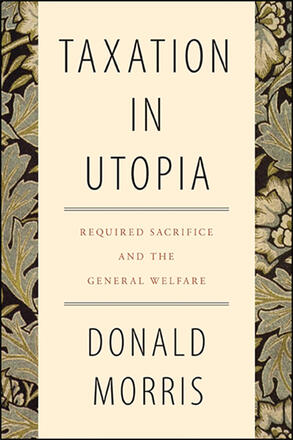
Taxation in Utopia
Required Sacrifice and the General Welfare
Alternative formats available from:
An interdisciplinary exploration of utopian political philosophy from the neglected perspective of taxation.
Description
Taxation in Utopia explores utopian political philosophy from the neglected perspective of taxation. At its core, taxation is an ethical question. It requires people to sacrifice for the benefit of others, whether or not they also benefit themselves. Donald Morris refers to this broader, nonmonetary context as constructive taxation, which includes restrictions on privacy and access to information, constraints on marriage and child-rearing, and conventions restricting the proprietorship of land. Morris examines this in the context of various utopian writings, such as More's Utopia, as well as literary treatments of these issues, such as Bellamy's Looking Backward. This interdisciplinary exploration of utopian taxation provides a novel approach to examining relations between a state's view of the general welfare and the sacrifices this view requires of its citizens.
Donald Morris is Professor Emeritus of Accounting at the University of Illinois, Springfield. He is the author of several books, including Tax Cheating: Illegal—But Is It Immoral?, also published by SUNY Press.
Reviews
"This is an extremely well researched and thorough exploration of utopian literature, effectively back to the beginning of the written word. Morris covers every major work of literature with a utopian element, and works through the tax (both pecuniary and constructive) present in all of these works. His explanation and analysis of economics and doctrine of tax laws is of the highest order." — Jennifer Bird-Pollan, University of Kentucky J. David Rosenberg College of Law